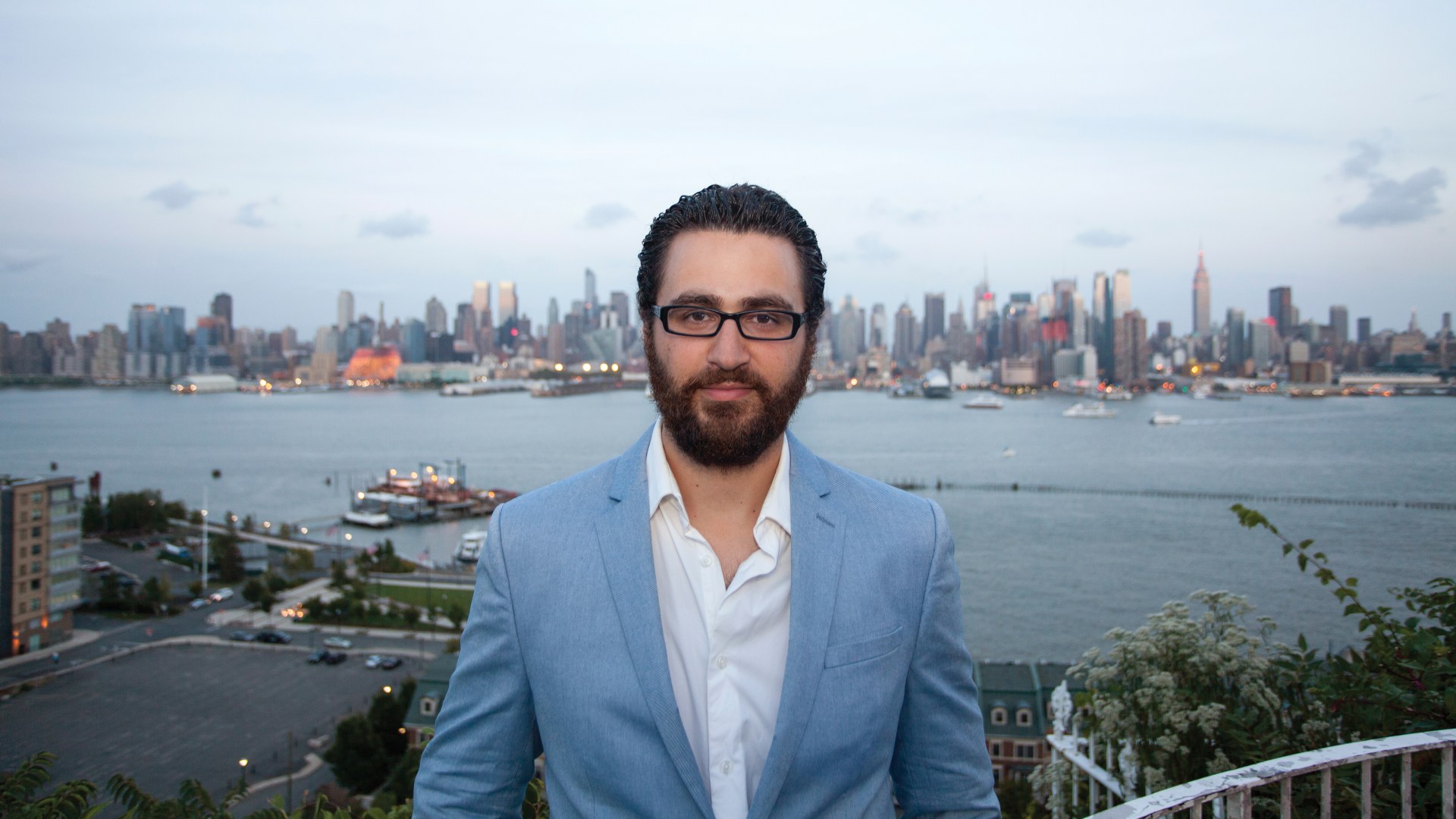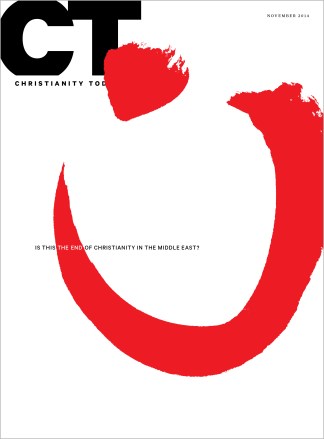If French atheists rarely become evangelical Christians, how much rarer it is for one to become an evangelical Christian theologian. So what happened? One might argue that with 66 million French people, I’m just a fluke, an anomaly. I am inclined to see it as the work of a God who says, “I will have mercy on whom I have mercy” (Rom. 9:15). Hearing the facts may help you decide for yourself.
I grew up in a wonderfully loving family in France, near Paris. We were Catholic, a religious expression that seemed to arise more out of tradition and perhaps superstition than conviction. As soon as I was old enough to tell my parents I didn’t believe any of it, I stopped going to Mass. I pursued my own happiness on all fronts, benefiting from my parents’ loving dedication. It allowed me to do well at school, learn to play the piano, and get involved in many sports. I studied math, physics, and engineering in college, graduated from a respected engineering school, and landed a job as a computer scientist in finance. On the sports front, after I grew to be 6 feet 4 inches and discovered I could jump 3 feet high, I ended up playing volleyball in a national league, traveling the country every weekend for the games.
An important part of young male French atheist ideals consisted of female conquests. Here, I was starting to have enough success to satisfy the raunchy standards of the volleyball locker room. All in all, I was pretty happy with my life. And in a thoroughly secular culture, the chances of ever hearing the gospel—let alone believing it—were incredibly slim.
New Life Goal
When I was in my mid-20s, my brother and I vacationed in the Caribbean. One day, returning from the beach, we decided to hitchhike home. A car pulled over. Two young women visiting from America were lost and needed directions to their hotel. Incidentally, it was right next to our house, so they gave us a ride.
They were attractive enough that my radar went off immediately, and we started flirting. The one I was interested in happened to mention she believed in God—by my standards an intellectual suicide. She also said she believed that sex belongs in marriage—an even more problematic belief than theism, if that were possible. Nevertheless, once the vacation ended, I returned to Paris, she to New York, and we started dating.
My new goal in life was to disabuse my girlfriend of her beliefs so we could be together without antiquated notions of God—or sex—standing in the way.
My new goal in life was to disabuse my girlfriend of her beliefs so that we could be together without antiquated notions of God—or sex—standing in the way. I started thinking: What good reason was there to think God exists, and what good reason was there to think atheism was true? This step was important, because my own unbelief rested comfortably on the fact that the smart people around me didn’t believe in God either. It was more a reasonable life assumption than the conclusion of a solid argument. But of course, if I was going to refute Christianity, I first needed to know what it claimed. So I picked up a Bible.
At the same time, I figured there was at least one experiment I could carry out. I thought, If any of this is true, then the God who exists presumably cares greatly about this project of mine. So I started to pray into the air: “If there is a God, then here I am. I’m looking into this. Why don’t you go ahead and reveal yourself to me? I’m open.” I wasn’t, but I figured that if God existed, that wouldn’t stop him.
A week or two after my unbelieving prayer, one of my shoulders started to fail me—without any accident or evident injury. My shoulder would burn out ten minutes into every practice. I just couldn’t spike. The doctor couldn’t see anything wrong, the physical therapist didn’t help, but I was told that I needed to rest my shoulder and to stop playing volleyball for a couple of weeks. Against my will, I was now off the courts.
With my Sundays available, I decided I would go to a church to see what Christians do when they get together. I drove to an evangelical congregation in Paris, visiting it as I would a zoo: to see exotic animals that I had read about in books but had never seen in real life. I remember thinking that if any of my friends or family could see me in a church, I would die of shame.
I don’t remember a word from the sermon. As soon as the service ended, I jumped up and hurried to the exit door, avoiding eye contact so I wouldn’t have to introduce myself. I reached the back door, opened it, and literally had one foot out the door when a chilling blast went up from my stomach all the way to my throat. I heard myself saying: “This is ridiculous. I have to figure this out.” So I put my foot back in, closed the door, and went straight to the pastor.
“So, you believe in God?”
“Yes,” he said, smiling.
“So how does that work out?” I asked.
“We can talk about it,” he said. After most of the people left, we went to his office and spoke for hours. I bombarded him with questions, and we met again over several weeks. He patiently and intelligently explained his worldview. And I nervously started to consider that all of it could be true. My unbelieving prayers shifted to, “God, if you are real, you need to make it clear so I can jump in and not make a fool of myself.” I started to hope that he would open the sky and send down the light.
Why Jesus Had to Die
What followed was less theatrical and more brutal: God reactivated my conscience. This was not a pleasant experience.
I remember lying in pain in my apartment near Paris, when all of a sudden the quarter dropped. That is why Jesus had to die: me.
At the same time I had started my investigations, I had also come to commit a particularly sinister misdeed, even by atheistic standards. Though I knew exactly what I had done, I had shoved it down inside. But God brought it back to mind in full force, and I finally saw it for what it was. I was struck with an intense guilt, crippled with chest pain, and disgusted at the thought of what I had done and the lies I had covered it with.
I was lying in pain in my apartment near Paris, when all of a sudden the quarter dropped. That is why Jesus had to die: me. He who knew no sin became sin on my behalf, so that in him I might become the righteousness of God (2 Cor. 5:21).
He took upon himself the penalty that I deserved, so that in God’s justice, my sins would be forgiven—by grace as a gift, rather than by my righteous deeds or religious rituals. He died so that I may live. I placed my trust in Jesus, and asked him to forgive me in the way Scripture promised he would.
Now that everything was in the open, I assumed God wanted me to marry my Christian girlfriend, and I moved to New York. We quickly learned we were absolutely not meant for each other. But now, uprooted and alone, with time on my hands, I was passionate about studying my newfound faith in order to explain it to friends and family. I read book after book, watched lectures and debates, and loved every moment. Eventually it was all I did in my free time. I figured that if I was going to spend all my time and energy studying Christianity, I might as well get a degree out of it. So I applied for seminary, and eventually obtained a master’s in New Testament studies. In the process, I met a wonderful woman, got married, had two children, and pursued my studies with a PhD program in philosophical theology.
This, in short, is how God takes a French atheist and makes a Christian theologian out of him. I was not looking for God; I neither sought him nor wanted him. He reached out, loved me while I was still a sinner, broke my defenses, and decided to pour out his undeserved grace—that his Son might be glorified, and that I might be saved from my sin by grace through faith, and not by works. It is the gift of God, so that no one may boast (Eph. 2:8–9).
That’s the gospel, and it’s good news worth believing.
Guillaume Bignon lives in New York City with his family. Reach him on Twitter @theoloGUI.










